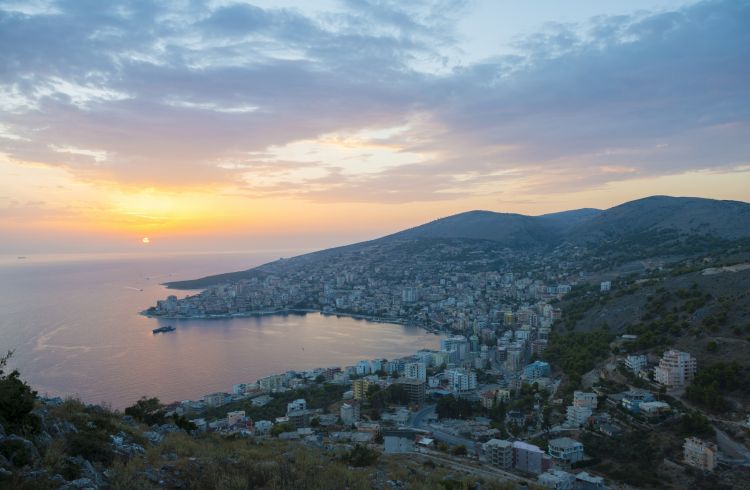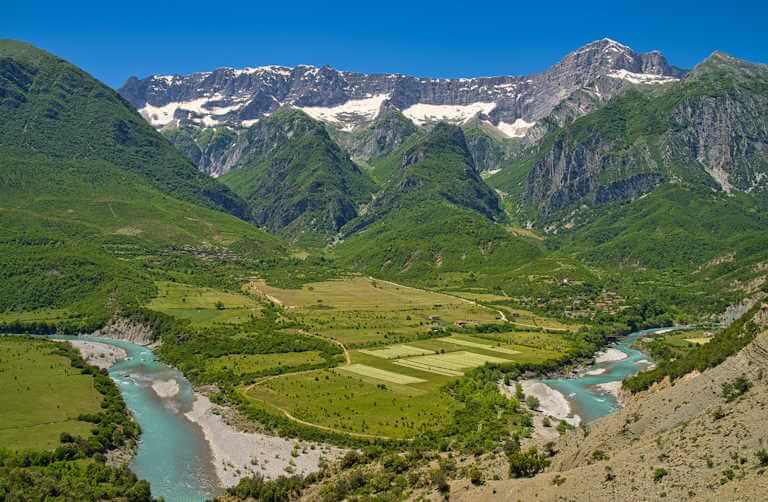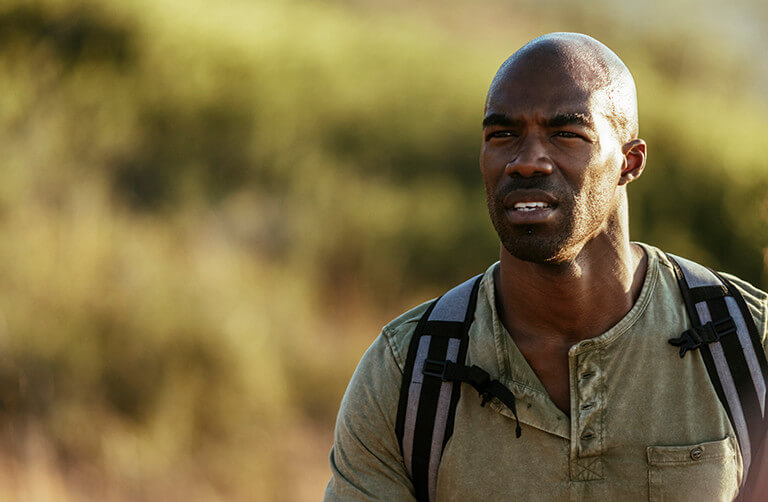Is Albania Safe for Travelers? Know Before You Go
Is Albania a dangerous place to visit? While generally safe for travelers, it's still important to take precautions. From crime and scams to earthquakes and healthcare, here are nine things you should know about safety in Albania.
 Photo © Getty Images/Joel Carillet
Photo © Getty Images/Joel Carillet
Albania continues to attract travelers with its stunning landscapes, rich history, and warm hospitality. Since the end of communist rule in the early 1990s, the country has seen a significant boost in tourism. While Albania is generally a safe destination, it's always wise to stay informed about potential risks and take necessary precautions.
Here are a few tips to stay safe while traveling in Albania.
- Crime and scams in Albania
- Emergency numbers in Albania
- Is Tirana safe?
- Credit card fraud in Albania
- Border hazards and regional risks
- Health and hygiene
- Natural hazards in Albania
- Safety for solo female travelers
- Safety for LGBTQ+ travelers
Crime and scams in Albania
Overall, Albania is considered safe for tourists. The crime index for Albania in 2024 is 45.4, roughly the same as Canada. Petty crime does occur, but it's relatively minor compared to many other European destinations. Pickpocketing, while present, is less frequent than in major cities like Paris or Barcelona. To minimize risks, secure your belongings and stay vigilant, especially in crowded places and on public transport.
Vehicle theft is more common than carjacking, so always lock your car and avoid leaving valuables in plain sight. Parking in secure, well-lit areas with surveillance cameras can also enhance your safety.
Emergency numbers in Albania
In case of an emergency in Albania, these are the local contact numbers to call:
- Police: 129 or 112
- Ambulance: 127
- Fire Department: 128
Is Tirana safe?
Tirana is considered relatively safe for both tourists and locals. The city's crime rate is lower than in many Western capitals, but like any major city, it’s wise to remain vigilant. Petty crime such as pickpocketing can occur, especially in crowded areas like markets, public transport, and popular tourist spots. Keep your belongings secure and be cautious in busy areas.
Areas to be cautious:
- Skanderbeg Square and vicinity: This central area is a major hub for tourists and locals alike. While it’s generally safe, be cautious of your belongings in large crowds and near street vendors.
- Blloku District: Known for its lively nightlife, Blloku is a popular area for dining and entertainment. Exercise caution when navigating crowded bars and nightclubs, and avoid any establishments associated with dubious activities.
- Outskirts and less populated areas: While central Tirana is well-patrolled, less frequented areas and outskirts can be less secure, particularly after dark. Stick to well-lit and populated areas if you’re exploring these parts of the city.
Public transport
Public transport in Tirana is relatively safe but can be crowded. Keep a close eye on your belongings, especially when using buses or taxis. It’s best to use registered taxi services and avoid accepting rides from unlicensed cabs.
Credit card fraud in Albania
Credit card fraud is common in Albania. When making transactions, keep your card in sight and be cautious with ATMs. Be wary of people who might be watching you enter your PIN and check for any suspicious devices attached to ATMs. Use machines located in secure, well-monitored areas, ideally within bank premises during opening hours.
Border hazards and regional risks
Unexploded landmines from past conflicts are a risk in the north-eastern regions, particularly hill towns near the Kosovo border. Stick to well-marked paths and trails and seek advice from local authorities to avoid these hazards.
Health and hygiene
Though Albania has made improvements in the quality of medical care, access to modern equipment and specialist doctors is limited, especially outside Tirana. The ability to handle serious trauma cases is also limited, as are ambulances. Since a serious injury may require evacuation to a place with better facilities, it’s wise to consider travel insurance with coverage for such an event.
In urban areas and larger towns, the water supply is generally treated and monitored for safety, making it relatively safe to drink from public taps. However, in rural areas or smaller towns, the safety of drinking water can be less reliable. The UK government recommends avoiding the tap water and sticking to bottled or filtered water.
Natural hazards in Albania
Albania is seismically active, with occasional earthquakes. The most recent significant quake occurred in November 2019, with a magnitude of 6.4. Familiarize yourself with your accommodation's evacuation procedures and earthquake safety tips so you’re prepared if a tremor happens while you’re there.
Albania can also experience heavy rains, floods, extreme summer heat, and wildfires. So, if you’re heading into mountainous or remote areas, tell someone at your accommodation about your plans and monitor weather conditions to avoid risky situations.
Safety for solo female travelers
Female travelers in Albania generally find the country to be safe and welcoming. However, it’s always wise to take standard precautions:
- Dress modestly: While Albania is relatively liberal compared to some neighboring countries, dressing modestly can help avoid unwanted attention, especially in more rural or traditional areas. Wear clothing that covers your knees and shoulders when visiting churches or other religious places.
- Avoid walking alone at night: Stick to well-lit and populated areas if you're going out in the evening. Research local maps and transportation and know where you’re going and how to get home.
- Be cautious with personal information: As with any destination, be cautious about sharing personal details (such as where you’re staying) with strangers.
Safety for LGBTQ+ travelers
Albania is a relatively conservative country, but it has made progress in LGBTQ+ rights in recent years. Here are some tips for LGBTQ+ travelers:
- Legal status: Same-sex relationships are legal in Albania, and there are anti-discrimination laws in place. However, same-sex marriage is not legally recognized.
- Social attitudes: While LGBTQ+ individuals can generally travel without major issues, public displays of affection may be met with disapproval in more traditional or rural areas. In urban areas like Tirana, LGBTQ+ visibility and acceptance are higher.
Related articles
Simple and flexible travel insurance
You can buy at home or while traveling, and claim online from anywhere in the world. With 150+ adventure activities covered and 24/7 emergency assistance.
Get a quote

No Comments